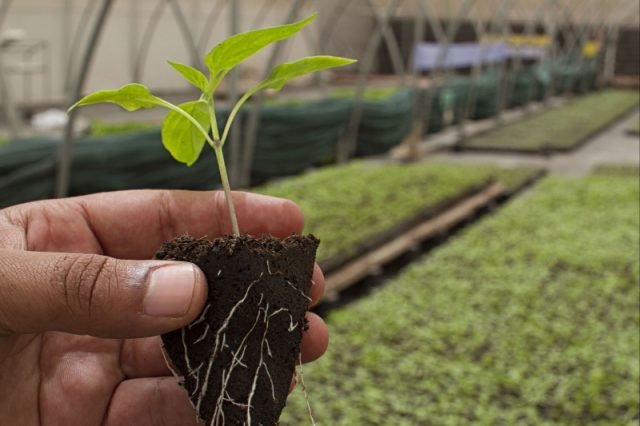A New Zealand-based agriculturist and businessman highlighted why organic farming could be more sustainable compared with conventional farming.
“The whole thing about certified organic farming is that you are nurturing the soil. It starts and ends with the soil,” Sante New Zealand’s managing director Peter Hope said in a roundtable media discussion in Taguig City last March 6.
Hope, who manages a 400-hectare certified organic barley farm in New Zealand, said that organic farming reduces soil erosion unlike conventional farming since the former does not use chemical pesticides or fertilizers.
“There hasn’t been one input of pesticides, chemical pesticides, or chemical fertilizers on that farm for 14 years, which is a very rare and cool thing,” Hope said.
Apart from reducing the threat of soil degradation, the Food and Agriculture Organization (FAO) of the United Nations said that organic farming contributes to mitigating the greenhouse effect and global warming through its ability to sequester carbon in the soil.
FAO added that since organic farming does not use non-organic pesticides, this farming method can also help prevent contamination of bodies of water.
Rodale Institute also said that organic farming has a smaller carbon footprint.
Ethics in farming
Meanwhile, Hope emphasized the value of ethics in farming. He shared that they are not engaged in “factory farming” or an intensive agriculture approach to maximize productivity and minimize production costs.
Sante New Zealand’s managing director said that he thinks people, especially the youth, are becoming more environmentally conscious when it comes to buying products.
“I think that’s the sort of thing that young people really want to know. They want to know that we’ve got an ethic, and the way that we farm and the way that we produce [products],” he said.
Aside from complying with ethics in farming, a research scientist at the Columbia University Center for Climate Systems Research cited that organic farming is challenged by how it could meet the needs of the people.
“For organic farming to be successful, agribusinesses would have to find the balance between the costs involved and also, its carbon footprint, while taking into consideration the overall need to meet the high demands for food,” said Alexander Ruane in a news report.
“That’s tough because the goal of organic farming in developed countries currently is about meeting the needs of those who can afford the luxury to buy the highest quality food. If the needs of this luxury interfere with the need to feed the entire population, then you have the potential for conflicts,” he added.










